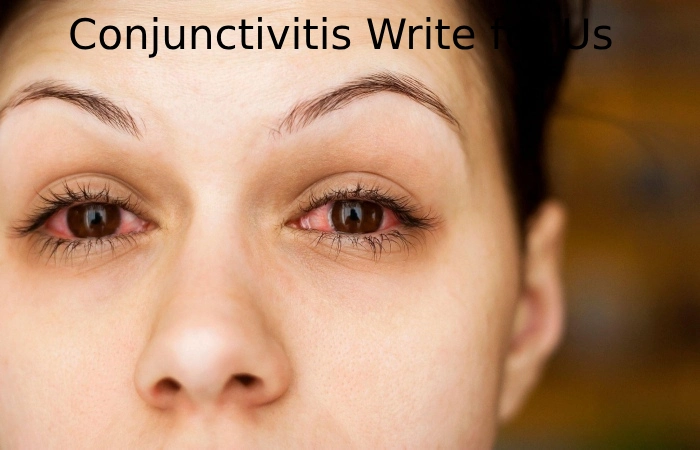
Conjunctivitis Write for Us
Conjunctivitis, commonly known as “pink eye,” is very common. 0It is the most common cause of red eye. it is an irritation of the conjunctiva, the thin, transparent layer covering the eye’s white surface and the inner eyelid. The eye’s sclera (white part) has fine blood vessels. When the conjunctiva becomes inflamed, these blood vessels enlarge and become more prominent, thus making the eye appear red.
What Are the Most Common Causes of Conjunctivitis?
A virus, bacteria, or allergies can all cause conjunctivitis. Bacterial and viral conjunctivitis are easily transmitted from one individual to the next. It is not possible to spread allergic conjunctivitis.
Viral
The majority of cases of viral conjunctivitis are minor. Without treatment, the infection typically clears itself in 7 to 14 days with no long-term consequences. .however, viral conjunctivitis might take 2 to 3 weeks or longer to clear up in some circumstances.
To treat more severe cases of conjunctivitis, a doctor may prescribe an antiviral medicine. it is caused by the herpes simplex virus or the varicella-zoster virus, for example. Antibiotics will not help viral conjunctivitis because they are ineffective against viruses.
Bacterial
They were putting eyedrops on their eyes. Mild bacterial conjunctivitis may improve without antibiotics and without creating issues. It usually improves in 2 to 5 days without treatment but might take up to 2 weeks to entirely disappear.
Your doctor may prescribe an antibiotic for bacterial conjunctivitis, usually administered topically as eye drops or ointment. Antibiotics may help shorten the duration of the infection, reduce complications, and prevent the infection from spreading to others. Antibiotics may be required in the following situations:
When it occurs in persons with impaired immune systems, it is associated with discharge (pus).
When the presence of certain germs is suspected
Discuss with your doctor the best treatment options for your infection.
Allergic
If you have allergic conjunctivitis, your doctor can help you. it induced by an allergen (such as pollen or animal dander) usually improves by removing the allergen from the person’s environment. Allergy drugs and specific eye drops (topical antihistamines and vasoconstrictors) can also alleviate allergic conjunctivitis, including treatment eye drops. Your doctor may recommend a medication to relieve symptoms in rare circumstances.
What Are The Symptoms Of Pink Eye?
Symptoms of pink eye include:
- Redness in the white of your eye or inner eyelid.
- Increased tearing.
- Thick yellow discharge that crusts over your eyelashes, especially after sleep.
- Green or white discharge from your eye.
- Gritty feeling in one or both eyes.
- Itchy eyes (especially pink eye caused by allergies).
- Burning eyes (especially pink eye caused by chemicals and irritants).
- Blurred vision.
- Increased sensitivity to light.
- Swollen eyelids.
How to Update Your Articles?
To Write for Us, you can email us at contact@vigorblog.com
Why Write for Us – Conjunctivitis Write for Us
Search Terms Related to Conjunctivitis Write for Us
Inflammation
Eyelid
The white part of the eye
Viral
Bacterial
Common cold
Handwashing
Antibiotics
Contact lenses
Gonorrhea
Chlamydia
Neonatal conjunctivitis
Search Terms for Conjunctivitis Write for Us
Submit an article
Guest posting guidelines
Become a guest blogger
Become an author
Submit post
Guest posts wanted
Suggest a post
Guest post
Write for us
Looking for guest posts
Guest posts wanted
Contributor Guidelines
Contributing writer
Writers Wanted
Guidelines of the Article – Conjunctivitis Write for Us
You can send your article to contact@vigorblog.com
Related Pages: